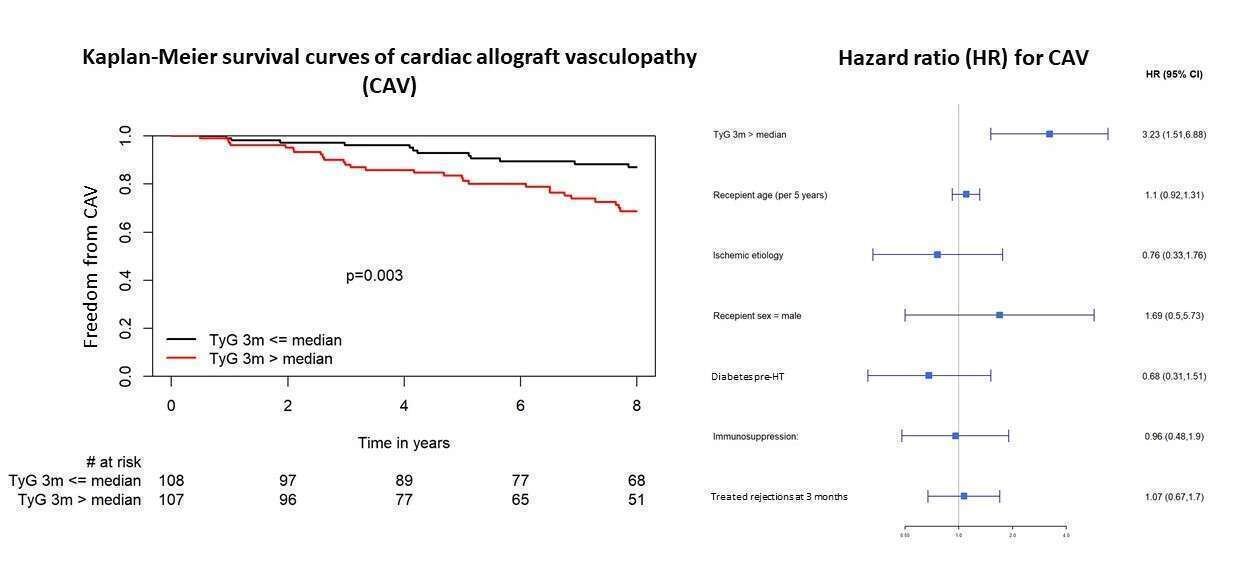
Triglyceride Glucose Index is an Independent Predictor for Cardiac Allograft Vasculopathy and Cardiovascular Mortality Following Heart Transplantation
Background: Cardiac allograft vasculopathy (CAV) is a major cause of morbidity and mortality following heart transplantation (HT). The triglyceride glucose (TyG) index, the product of plasma glucose and triglycerides, a surrogate of insulin resistance, has been demonstrated to predict cardiovascular morbidity and mortality in the non-transplant population. We investigated the association between TyG index and cardiovascular outcomes following HT.
Methods: A total of 215 HT patients were assessed for TyG index using the formula ln[fasting triglycerides (mg/dL) × fasting glucose (mg/dL)/2]. Patients were divided into high and low TyG index groups according to the median value (8.91) at 3-month post HT. Endpoints included CAV, cardiovascular (CV) mortality, treated rejection (TR), and non-fatal major adverse cardiac events (NF-MACE).
Results: Baseline patient and donor clinical and demographic characteristics were similar for the two groups. Kaplan-Meier analyses showed that at 8 years after HT (median follow-up time), high TyG index was associated with lower freedom from CAV (69 vs. 87%, log-rank p = 0.003, Figure), lower freedom from the combined endpoint of CAV/CV mortality (64 vs. 82%, log-rank p=0.004), and lower freedom from NF-MACE (79 vs. 92%, log-rank p=0.009). There were no significant differences in freedom from TR. Multivariable analyses consistently demonstrated that a high TyG index was independently associated with a significant 3.2-fold increased risk of CAV and 2.40-fold increased risk of CAV/CV mortality (95%CI 1.51 to 6.88, p = 0.003, Figure; 95%CI 1.21 to 4.75, p = 0.02, respectively).
Conclusion: The study supports the strong association between the TyG index and HT outcomes. A high TyG index was an independent predictor of CAV and CV mortality. Further studies are needed to determine whether interventions for the TyG index have a positive impact on improving CAV outcomes.

Powered by Eventact EMS